 Microsoft capped a busy year of SharePoint activity with the November release of Feature Pack 1 for SharePoint 2016. This year’s momentum began with the release of SharePoint 2016 in the spring coupled with the Future of SharePoint sessions in May.
Microsoft capped a busy year of SharePoint activity with the November release of Feature Pack 1 for SharePoint 2016. This year’s momentum began with the release of SharePoint 2016 in the spring coupled with the Future of SharePoint sessions in May.
These events affirmed Microsoft’s ongoing dedication to SharePoint on-premises. This commitment was further cemented during the Microsoft Ignite conference in September; the November release of Feature Pack 1 for SharePoint Server 2016 continues this trend.
Move Over Service Packs, Enter Feature Packs
First, you may ask, “What is a feature pack?” Historically, changes to on-premises SharePoint were deployed via “service packs” designed to fix bugs and maybe introduce new features. These came out about once a year or so.
Meanwhile, in Office 365, SharePoint is updated on a continuous basis. Since Microsoft runs the Office 365 environment, new features and fixes can be deployed as soon as they are ready. Microsoft’s stated goal is to bring this quick-update capability to SharePoint 2016 on-premises deployments; thus, “Feature Packs” are made available much more often than service packs. Since SharePoint in Office 365 and SharePoint on-premises share the same code base, the new Office 365 features can be easily deployed to on-premises.
According to the Microsoft SharePoint Team, “Feature Packs allow us to accelerate delivery of cloud-first features … outside of the traditional two- to three-year release cadence.” For SharePoint 2016 shops, there is no longer a wait for a service pack every year or two. Now, new functionality is made available to on-premises customers with only minor delays.
Feature Pack 1 for SharePoint Server 2016
Feature Pack 1 for SharePoint Server 2016 is now available for download and includes these features:
For Administrators
- Logging: Keep track of administration changes via action logging. This feature tracks all changes made by admins in the Central Administration website or the Management Shell. Useful for multiple admin scenarios.
- MinRole Enhancements: Addition of two new server roles for MinRole that are optimized for small and medium-sized server farms. You can now run on just two servers or a high availability MinRole farm with just four servers.
For End-Users
- OneDrive for Business Modern Experience: UI overhaul to the OneDrive for Business experience to more closely resemble the look & feel of OneDrive in Office 365. Requires a Software Assurance contract.
- Custom Tiles: The App Launcher, used to launch SP and Office 365 workloads, now allows users to add their own custom tiles linked to SharePoint sites, external sites, and legacy apps.
- OneDrive API: SharePoint on-premises users can now access the OneDrive API to build file management and workflow apps. The API provides a set of HTTP services designed to connect your application to files and folders in OneDrive Personal, OneDrive for Business, and document libraries in SharePoint Online.
Extended Support for Hybrid Scenarios
Feature Pack 1 also includes support for organizations who wish to integrate their on-premises SharePoint investments with Office 365. There are now two new hybrid scenarios available:
- SharePoint Hybrid Auditing: This feature is designed to help admins manage their SharePoint infrastructure by providing them access to reports and dashboards used in Office 365; specifically, the use of diagnostic and usage logs. If you opt-in for this service, audit logs are collected and then uploaded to Office 365 on a regular basis. From the Office 365 dashboard, you can view auditing and activity reports that display usage and reliability patterns in your SharePoint Server farm.
- Hybrid Taxonomy: Taxonomy is used to promote discoverability and content access. The new hybrid taxonomy feature enables customers to bring their taxonomy store to Office 365, effectively establishing a single-source for creating and managing Terms, Term Sets, and Groups through a single Managed Metadata Service.
Summary
In the future SharePoint enthusiasts will look back to 2016 as the year when Microsoft stepped up to the SharePoint plate, allayed fears, and established an ongoing framework that guarantees the viability of SharePoint as the collaborative platform of choice. Of course time will tell if this trend continues apace, but all signs point to a robust future for Microsoft SharePoint.
Want to learn more about how our solutions can help your company engage with your customers and/or users? Give us a call at 1-925-478-3110 or contact us by e-mail at sales@crowcanyon.com
